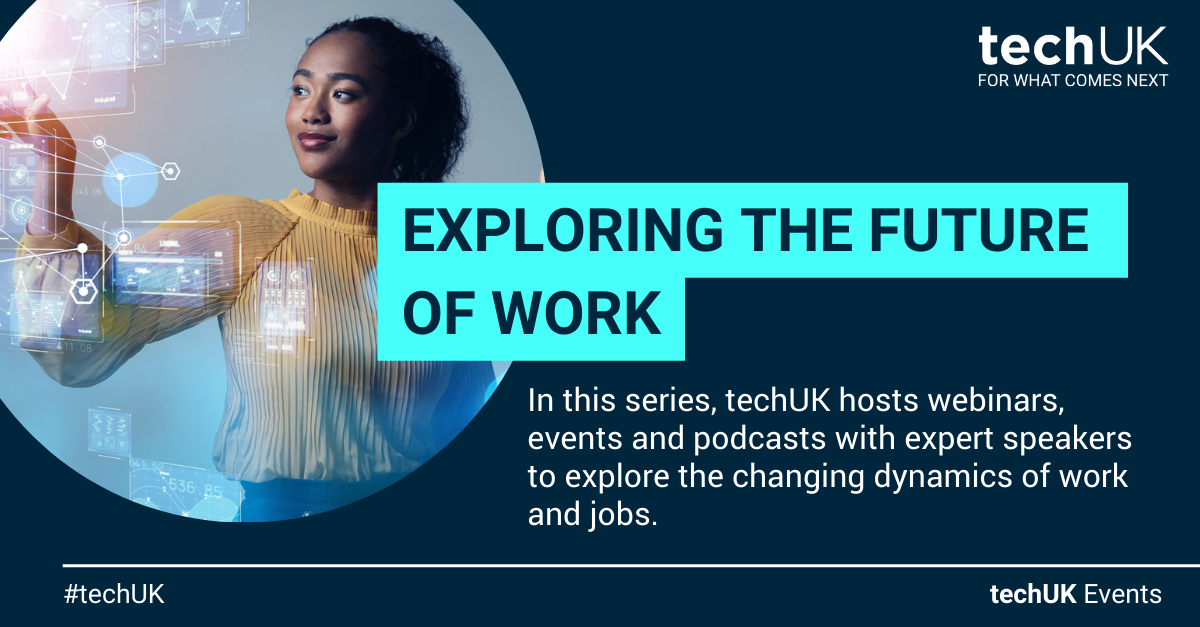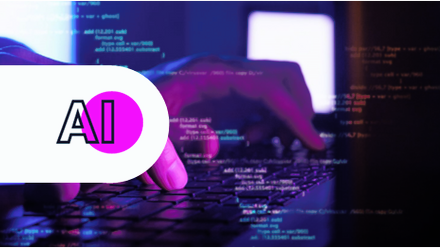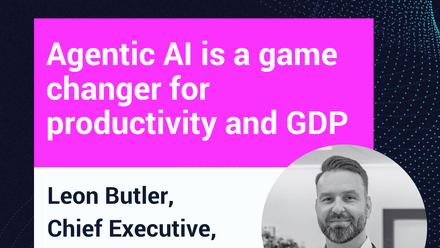Making AI work for Britain
The future of work will be AI-enabled. Whilst discussions around the impact of AI on work often focus on machines replacing humans, the reality is that humans will increasingly work alongside machines and AI in the future workplace. In this report, techUK explores the impact of AI on work and the workforce, spotlighting nine actions for the UK government to support businesses and workers to take advantage of AI in the workplace.

Catch up with past Future of Work events

AI and people: what does the future of work hold for HR and hiring?
Read our summary of a webinar titled "AI and people: what does the future of work hold for HR and hiring?"

The future of software development in the era of AI
We round-up an event on what the future of software development might look like in an AI-enabled world, with speakers from Codurance, Adarga, Panintelligence and Founders and Coders.

Where Matters: the role of place in the future of work | techUK event round-up
Catch up with insights from our webinar with Zoom, HP, Purple Beard and the Institute for the Future of Work where we discussed the significance of place.

Making AI work for Britain | techUK event round-up
Catch up with insights from industry and trade unions speaking at the launch of techUK’s Making AI work for Britain report.

Watch on-demand: Lessons on the rise of the gig economy
This panel session explored the rise of the gig economy and its implications for the future workforce, as part of our Exploring the Future of Work Series.

Event round-up: How is cloud powering the future of work?
techUK hosted a webinar as part of Cloud Week and our Exploring the Future of Work Series, exploring how cloud is changing the workforce needs of organisations.
How can we skill tech to reach net zero goals?
Catch up with all of the key insights from techUK's London Tech Week event on the topic of green skills.
DIGIT Debates: Making AI work for Britain
Watch Jake Wall, Policy Manager for Skills and Future of Work, techUK present our latest report Making AI work for Britain to the Digital Futures at Work Research Centre as part of their DIGIT Debates webinar series.
The webinar explored the impact of AI on jobs, work and the workforce, as well as the future of skills, and what steps the UK must take to support people and businesses across the whole country to prosper in an AI-enabled world of work.
The Work Couch: AI and work | RPC Podcast
In this RPC podcast, Jake Wall, Policy Manager for Skills and Future of Work at techUK joins Ellie Gelder and Patrick Brodie, Partner and Head of RPC's Employment, Engagement and Equality team to discuss the interplay between AI and employment law.
Latest news & insights
Upcoming events
Related hubs

Jobs and skills
To make sure that the UK is a world-leading digital economy that works for everyone, it is crucial that people have the digital skills needed for life and work. Rapid digitisation is creating surging demand for digital skills across the economy and the current domestic skills pipeline cannot keep up. Digitisation is also leading to rapid changes in the labour market that means some traditional roles are being displaced. There is an urgent need to better match the demand and supply.

Digital economy
The UK tech sector employs over 1.7 million people and adds over £150bn to the UK economy every year. Companies in the digital economy apply their tech and expertise to solve problems and enhance day to day services, providing benefits for consumers across food delivery, health, energy, and many more sectors. At techUK, our aim is to ensure the UK remains one of the best places to start and grow a tech firm with benefits for our people, society, economy and planet.





















